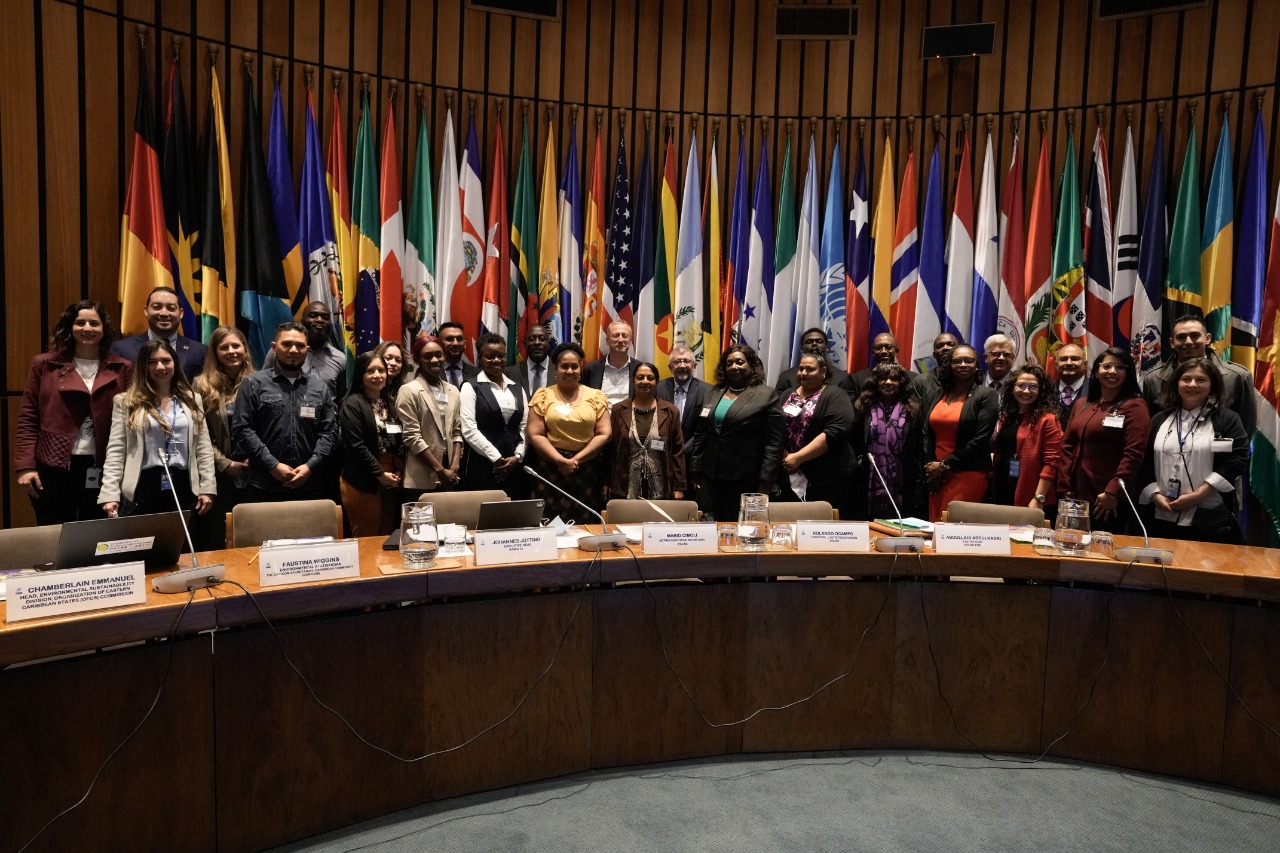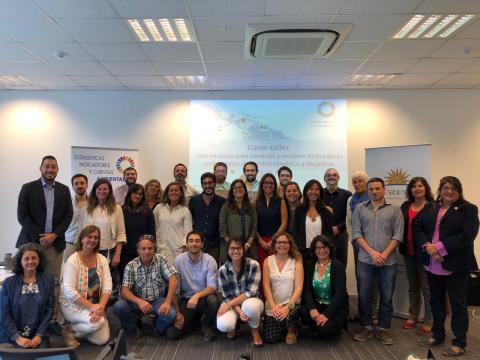News
The complexity of the climate crisis in the Caribbean necessitates a data-based response on a global, regional, national and local level, according to the specialists gathered today at a subregional seminar entitled Strengthening environment, climate change and disaster information in the Caribbean, organized by the Economic Commission for Latin America and the Caribbean (ECLAC) in collaboration with PARIS21.
During the event, which concludes on Wednesday, August 24, representatives of national statistics offices and the Environment Ministries of Caribbean countries, as well as international specialists, stressed the urgency of taking concrete actions that would enable the Caribbean region to steadily advance towards climate change mitigation and adaptation.
The seminar was inaugurated by Mario Cimoli, Acting Executive Secretary of ECLAC; Johannes Jütting, Executive Head of PARIS21; Reena Shah, Head of the Environment Statistics Section of the United Nations Statistics Division; Faustina Wiggins, environmental statistics specialist at the Secretariat of the Caribbean Community (CARICOM); Chamberlain Emmanuel, Head of the Environmental Sustainability Cluster of the Organisation of Eastern Caribbean States (OECS); Muhammad Anwar Baksh, Planning and Development Officer at the Caribbean Disaster Emergency Management Agency (CDEMA); and Rolando Ocampo, Director of ECLAC’s Statistics Division.
At the meeting, participants emphasized that the subregion’s countries not only need high-quality data to monitor, report and analyze changes in the climate, but they also need data to inform and accelerate mitigation and adaptation actions.
In response to this need, the experts highlighted that several countries in the region are already working to strengthen the production and use of quality data on climate change to inform decision-making through the development of statistical compendiums on the environment and climate change and the implementation of data platforms.
Despite these efforts, they warned, this development is sporadic and uneven, and critical challenges continue to exist for maintaining and developing current initiatives.
They specified that some of the region’s most pressing problems are the lack of coordination within national statistical systems and with the broader data ecosystem, which includes civil society, the academic world and the private sector; the protocols established for exchanging data; and the resources sustained and the development of strategic capacities for data on climate change.
In his opening remarks, Mario Cimoli, Acting Executive Secretary of ECLAC, stressed the urgency of putting the situation of Caribbean countries at the center of the regional and global agenda.
“Caribbean countries are suffering the effects of climate change, but they also face difficulties in obtaining support instruments to mitigate and confront this problem, along with difficult access to financing for development. They face a huge asymmetry,” he affirmed.
Johannes Jütting, Executive Head of PARIS21, warned that the urgency of taking action in this climate crisis is truly critical, and he urged for promoting partnerships to free up data on climate change.
In addition, he called for ensuring better financing for climate change data.
Faustina Wiggins, meanwhile, emphasized that CARICOM will continue supporting the efforts of Caribbean countries to produce statistics on the environment, climate change and disasters, with the aim of mitigating the impact of these problems and creating resilience.
She specified that, at the center of all these efforts is CARICOM’s Regional Strategy for the Development of Statistics, which is the strategic road map for statistical development by 2030.
Chamberlain Emmanuel stated that environmental management and sustainable development planning require an understanding of the complex island ecosystems and territorial systems in order to ensure that the decisions and strategies adopted have the desired effect in the short, medium and long term.
“This understanding must be based on solid, objective, data-based models, which in turn serve as the basis for decision-making. The availability of sets of reliable, updated and exhaustive data is, therefore, fundamental for planning and environmental management and for resilience,” he emphasized.
Muhammad Anwar Baksh, meanwhile, agreed on the need to better equip Caribbean countries so they can have more effective information that would enable them to take evidence-based climate action.
“We recommend that solutions be developed within a global framework that examines the challenges and good practices related to these systems in the context of compiling and exchanging other data on dangers and risks,” he indicated.



